Subtotal: ₹3,134.00
UNO Based ESP8266 Nodemcu Development Board
In Stock
In Stock
Add to Wishlist
CompareAdd to Wishlist
-
Based on ESP-8266EX.
-
Arduino compatible, using Arduino IDE to program.
-
Support OTA wireless upload.
-
Onboard 5V 1A Switching Power Supply (highest input voltage 24V).
-
The direct use of Arduino IDE development, the same operation with Arduino UNO.
-
Operating Voltage: 3.3V
-
Digital I/O Pins: 11
-
Analog Input Pins: 1
-
oardUNO Based ESP8266 Nodemcu Development B
Description
- Arduino Compatibility: The board is compatible with the Arduino IDE and the Arduino programming language, making it accessible to a vast community of Arduino enthusiasts and developers.
- WiFi Connectivity: Equipped with the ESP8266 WiFi module, allowing for seamless wireless connectivity to the Internet and local networks.
- Expansion Headers: Features standard Arduino headers, enabling easy connection to a wide range of sensors, modules, and peripherals.
- Built-in USB-to-Serial: Includes a built-in USB-to-Serial converter for easy programming and communication with a computer.
- Onboard Regulator: Contains an onboard voltage regulator, ensuring stable and consistent power supply to the board and connected components.
- Integrated USB Port: Equipped with a micro-USB port for programming and powering the board.
- Multiple GPIO Pins: Provides a generous number of GPIO (General Purpose Input/Output) pins for interfacing with sensors, displays, motors, and other devices.
- Compatibility with NodeMCU Firmware: Supports NodeMCU firmware, enabling easy programming using Lua script for IoT applications.
- Real-Time Clock (RTC): Some models include an RTC module for time-keeping applications and accurate timestamping.
- User-Friendly: Designed for easy installation, programming, and integration into IoT projects.
- Versatile Use: Suitable for a wide range of applications, including home automation, remote sensing, IoT data collection, and more.
- Expandable Storage: Some versions may include microSD card slots for data storage and logging.
- OTA (Over-the-Air) Updates: Supports OTA updates, allowing for firmware updates and maintenance without physical access to the board.
The ESP8266 NodeMCU development board is a popular platform for IoT (Internet of Things) projects, combining the ESP8266 WiFi module with the convenience of Arduino-compatible development. Here's a general specification for a typical NodeMCU development board:
-
Microcontroller: ESP8266EX (Integrated WiFi SoC)
-
Operating Voltage: 3.3V (Ensure all peripherals are compatible)
-
Clock Speed: Typically 80MHz, can be overclocked to 160MHz
-
Flash Memory:
-
Usually comes with 4MB SPI Flash memory for program storage.
-
-
WiFi Connectivity:
-
Integrated IEEE 802.11 b/g/n Wi-Fi
-
Station, access point, and both TCP/IP and UDP protocols supported
-
-
GPIO Pins:
-
General-purpose input/output pins for interfacing with external hardware.
-
Most NodeMCU boards offer around 9-11 usable GPIO pins.
-
Pins are typically 3.3V tolerant.
-
-
Analog Inputs:
-
Usually equipped with one or more analog input pins (ADC), typically 10-bit resolution.
-
ADC pins are commonly labeled as A0, A1, etc.
-
-
Digital I/O Pins:
-
GPIO pins can be used for digital input or output.
-
-
Serial Communication:
-
Supports serial communication (UART) for debugging and communication with other devices.
-
Typically has one hardware serial port (Serial).
-
-
USB Interface:
-
Micro USB port for power supply and serial communication with the computer.
-
-
Reset Button:
-
For resetting the microcontroller.
-
-
Boot Mode Selection:
-
Some boards may have DIP switches or jumpers for selecting boot modes.
-
-
Power Supply:
-
Can be powered via USB or external power supply (3.3V).
-
Some boards have onboard voltage regulators for stable operation.
-
-
LED Indicators:
-
Onboard LEDs for indicating power and status.
-
-
Programming Interface:
-
Can be programmed using the Arduino IDE with the ESP8266 board package installed.
-
-
Operating Temperature:
-
Typically rated for 0°C to 70°C.
-
-
Dimensions:
-
Physical dimensions vary but are typically small and compact, suitable for IoT applications.
-


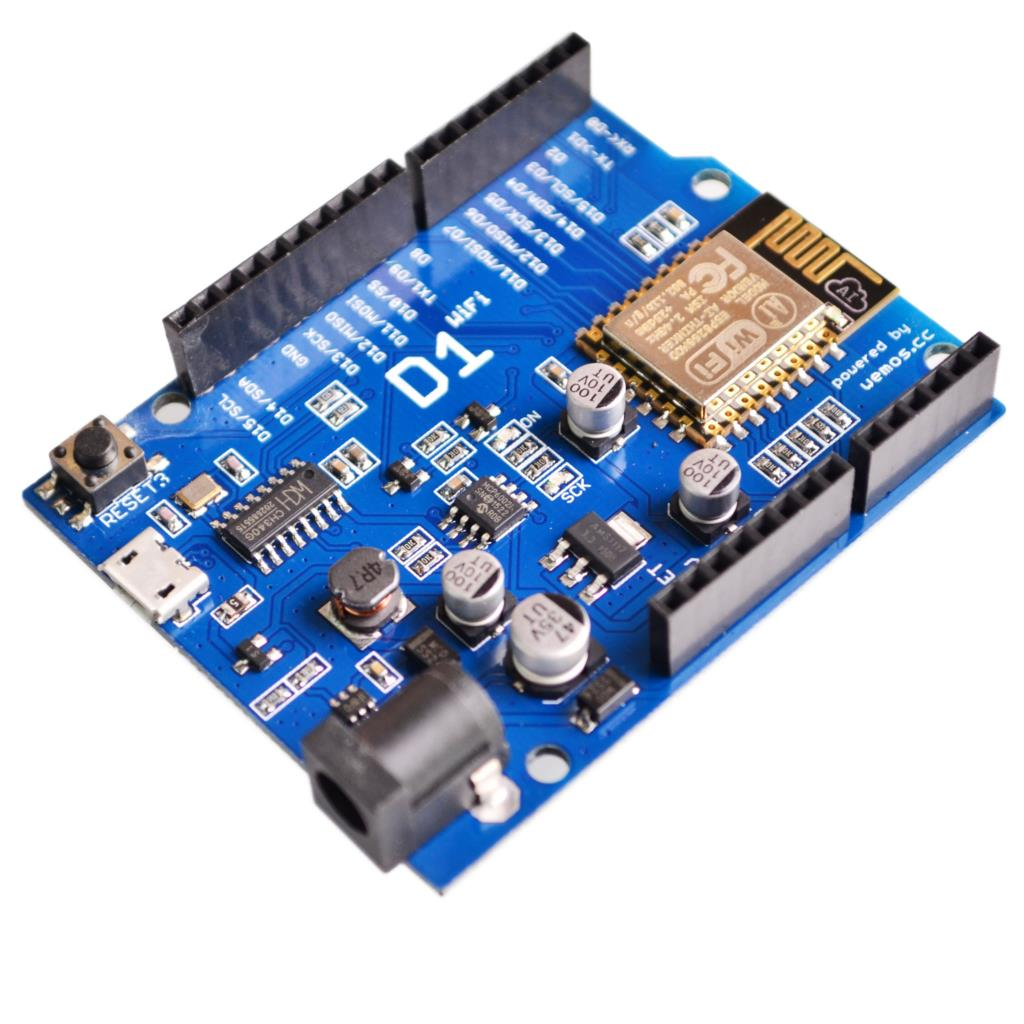
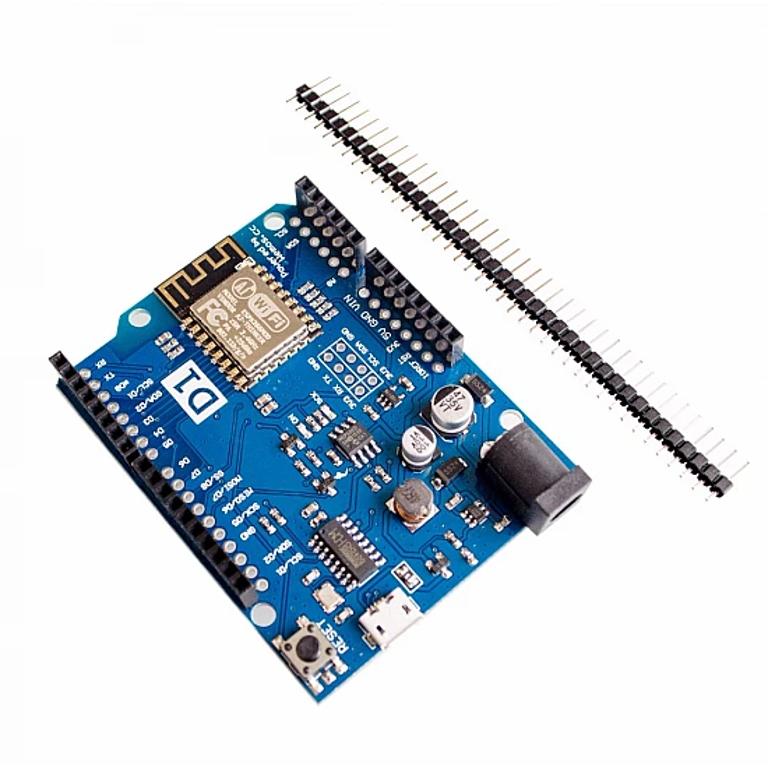
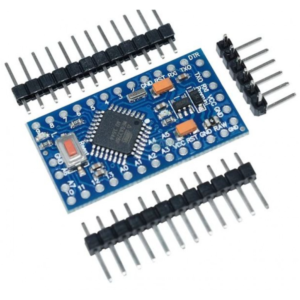
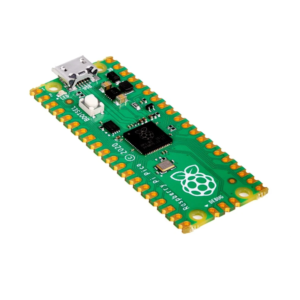
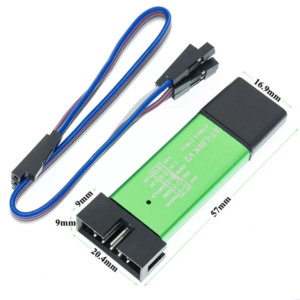
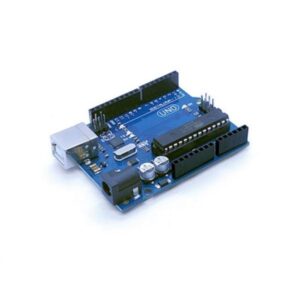

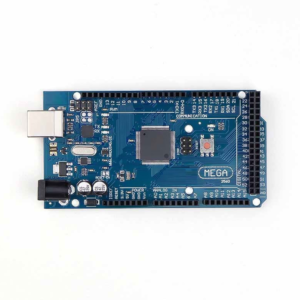
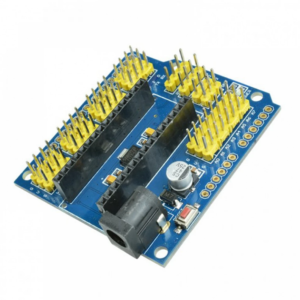
Reviews
There are no reviews yet.